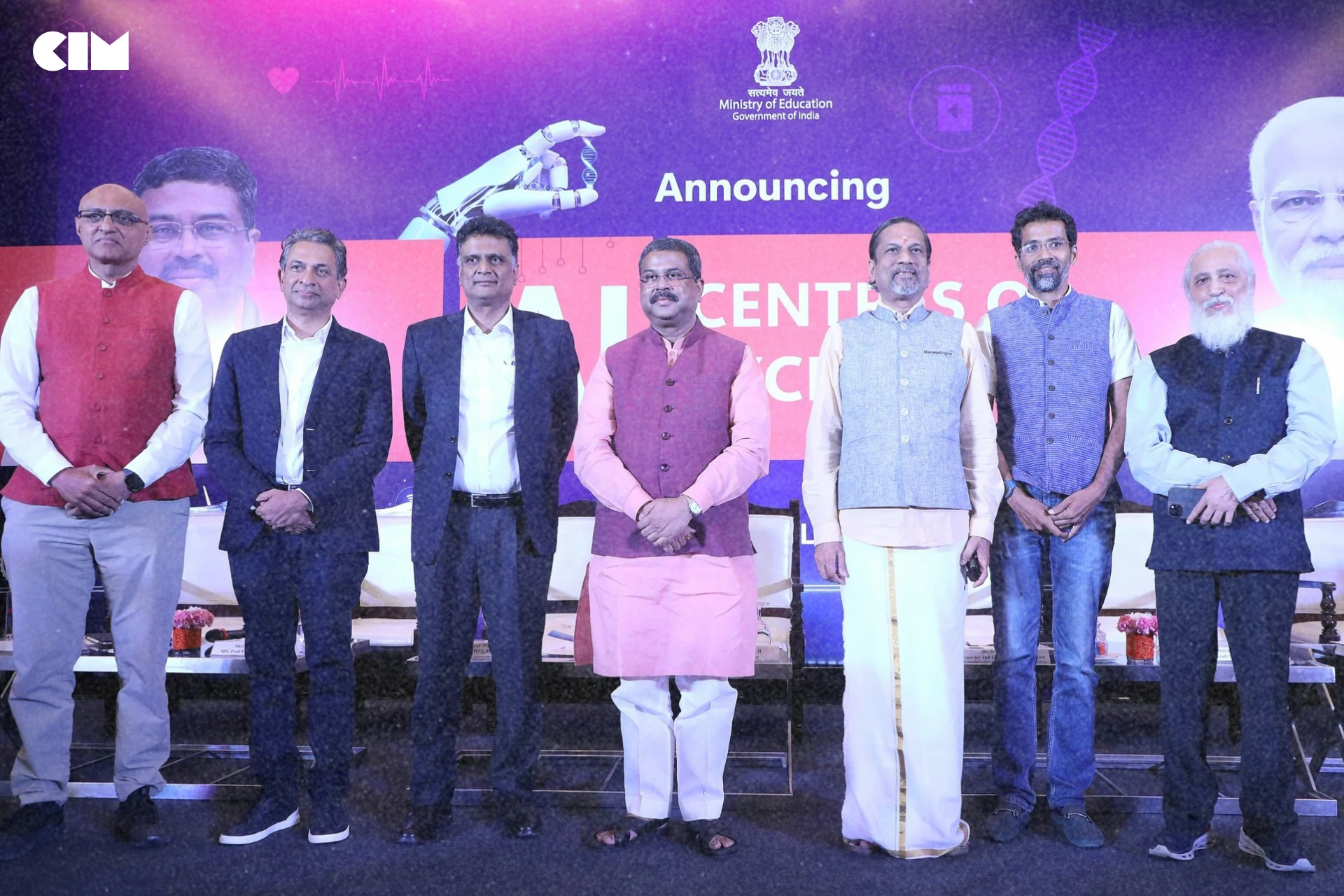QUICK BYTE
- The Indian government has launched three AI Centres of Excellence in Healthcare, Agriculture, and Sustainable Cities to drive innovation and public good.
- Led by AIIMS and IITs, the AI-CoEs will collaborate with industry partners to foster interdisciplinary research and create scalable AI solutions.
The Union Minister for Education, Dharmendra Pradhan, has recently announced the establishment of three AI Centres of Excellence (CoEs) in New Delhi, focusing on Healthcare, Agriculture, and Sustainable Cities. These AI-CoEs, launched in collaboration with leading academic institutions such as AIIMS, IIT Delhi, IIT Ropar, and IIT Kanpur, aim to boost India’s presence in the global AI landscape. The initiative is part of the government’s broader vision to make India a global hub for artificial intelligence and innovation.
Prime Minister Narendra Modi also took it to X (formerly Twitter) to laud the initiative. He wrote, “A very important stride in India’s effort to become a leader in tech, innovation and AI. I am confident these COEs will benefit our Yuva Shakti and contribute towards making India a hub for futuristic growth.”
Pradhan emphasized the potential of the CoEs to serve as hubs of public good, both nationally and internationally. He noted that India’s talent pool and innovative spirit will make the CoEs key contributors to global public policy and technological solutions. The centres are expected to drive job creation, foster start-ups, and support interdisciplinary research across sectors.
The Apex Committee overseeing the CoEs is co-chaired by Sridhar Vembu, CEO of Zoho Corporation, who highlighted the holistic impact of the centres on India’s rural and urban sectors. Vembu expressed optimism about nurturing a new generation of talent and entrepreneurs through these AI initiatives.
Other notable speakers, including K. Sanjay Murthy, Secretary of the Department of Higher Education, and Anil Sahasrabudhe, Chairman of the National Educational Technology Forum, echoed the importance of collaboration between academic institutions, industry, and government to ensure the success of the CoEs. Murthy stressed the importance of interdisciplinary research and competition-based challenges in solving real-world problems.
The three CoEs will operate in consortium with industry partners and startups, focusing on scalable AI solutions. With a budget of Rs. 990 crore allocated over five years, the initiative underscores India’s commitment to advancing its AI capabilities, in line with the government’s goal of “Viksit Bharat” and the “Make AI in India” campaign. The centres are designed not only to address local challenges but also to contribute to the global AI ecosystem.
Interestingly, in July, the Economic Survey cautioned about the threat of artificial intelligence (AI) to the Indian economy. Led by Chief Economic Advisor V Anantha Nageswaran, the survey highlighted that as AI becomes more advanced and widespread, it introduces significant uncertainty about its impact on workers of all skill levels—low, medium, and high. Additionally, this could reshape the future of work in India, potentially creating obstacles that hinder sustained high growth rates in the coming years and decades.


